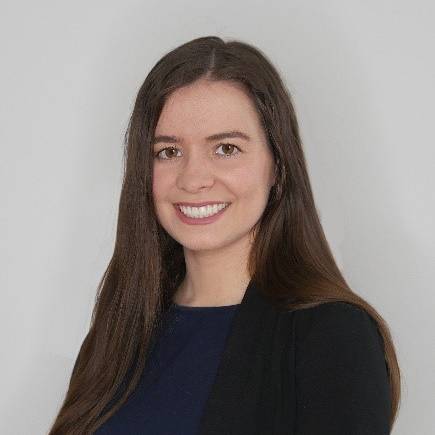Equipping the young professionals of tomorrow with the skills to build, maintain, and transform Canada’s energy infrastructure is a core value to the Young Pipeliners Association of Canada, which is why we’ve paired our industry professionals with a capstone design team. The Young Pipeliners have sponsored an interdisciplinary design project at Queen’s University with the Faculty of Engineering and Applied Science in the APSC 480 course. APSC 480 is a multidisciplinary industry-partnered two-term capstone design experience that provides engineering students with the challenge of an immersive real-world engineering project in partnership with an industry client.
Young Pipeliners has assembled a team of four industry professionals (Lindsay Drozdiak from TC Energy, Peter Tanchak from Enbridge Pipelines, Dr. Kshama Roy from Northern Crescent, and Lincoln Sekkappan from Gibson Energy) to partner with four Queen’s University Students – Freskim Kacuri (Civil Engineering Candidate, ’22), Rosanne Sorel-Sousa (Chemical Engineering Candidate, ’22), Gavin Stone (Chemical Engineering Candidate, ’22), and Laura Lee (Chemical Engineering Candidate, ’22). We have asked few questions to the students on their experience on this ongoing Capstone project.
Freskim: Hello, my name is Freskim, and I am a fourth-year civil engineering student at Queen’s University. I have previously completed an internship at TC Energy and will continue my career there post-graduation. I am passionate about innovation and how new technologies can reduce environmental impact.
Rosanne: Hello, my name is Rosanne, I am a fourth-year chemical engineering student at Queen’s University in Kingston. I am interested in new evolving clean processes and technologies. I am originally from Montreal and will be pursuing my post-graduation plans there as a Junior Process Engineer.
Gavin: Hello, I’m Gavin and I’m from Brampton, Ontario. I am in my fifth year of chemical engineering at Queen’s University. In addition to studying engineering, I also row for Canada’s national team. My post-graduation plans are to return to full time training and make a bid for Paris 2024.
Laura: Hello, my name is Laura and I am currently in my fourth year of chemical engineering at Queen’s University. After graduation, I hope to work in an area relating to environmental sustainability, energy, or process improvement.
We sat down (virtually, of course!) with the students to ask them a few questions about their career plans post-graduation and their outlook on Canada’s energy industry.
What have you learned about the Pipeline industry? What surprised you the most?
The team and I were pleasantly surprised by the Pipeline industry’s ability and willingness to innovate to meet Canada’s climate goals. The industry adapted quickly to the growth of CCUS initiatives, which resulted in several new and exciting project announcements. These include the partnership between Pembina and TC Energy to build the Alberta Carbon Grid and Enbridge’s proposed plans to create a world-scale open-access carbon storage hub in the Wabamun area. These projects show how forward-thinking and innovative the Pipeline industry can be and demonstrate its readiness to transition into more sustainable practices.
– Freskim
What role does CCUS play in meeting Canadian climate targets? Can the Canadian pipeline industry play a role here?
CCUS plays an important role in the energy transition and energy future of Canada. CCUS will help Canada meet their GHG reduction commitment, by reducing CO2 emissions, while balancing the energy requirements of the country. Once CO2 is captured, the safest way to displace large quantity is through pipelines. Therefore, it is crucial that Canada expands it’s CO2 pipeline network to transport the captured CO2 to either a safe storage location or to be utilize in a chemical process. The Canadian Pipeline industry role’s is to work hand in hand with CO2 emitters to help implement viable CCUS project with safe CO2 transportation from the capture to the end-usage.
– Rosanne
Where do you think the greatest opportunities are for CCUS in Canada?
Currently the greatest opportunities for CCUS in Canada are in Alberta since it has favourable geology for the permanent sequestration of CO2 and is tectonically stable. In addition, Alberta has the most significant capture potential in Canada because it has large hubs of stationary CO2 emitters. Alberta’s government is also encouraging the development of sequestration hubs and developing a system to store CO2 from multiple upstream suppliers which will benefit the implementation of future CCUS initiatives. As well, there is significant regulatory framework established in Alberta for CCUS operations. There is a large opportunity for the Canadian pipeline industry to become involved with CCUS because it is expected that emitters will become likely to capture CO2 due to the increasing fuel charge. This means there will be a large need for infrastructure to transport CO2 to suitable aquifers.
– Laura
What policies are going to be required to make CCUS investments feasible in Canada?
I believe the biggest policy change required to make CCUS investments feasible will be a major increase in the fuel charge (carbon tax). While companies with green initiatives will undertake CCUS initiatives while the economics are not entirely favourable, widespread adoption of CCUS won’t occur until the government makes the cost of emitting carbon higher than the cost of capturing it. A higher carbon tax will also increase the effectiveness of the output-based pricing system (OBPS). The financial reward of being below the emissions limit for a compliance period will be greater. Therefore, smaller companies who may not be above the limit will be more likely to implement a capture system as they will be able to trade or sell their credits to larger companies over their own limit. This would lead to CCUS investments being more feasible at smaller scales.
– Gavin
Are any of you looking to pursue opportunities in the industry? What are your post-graduation plans? Are there areas of interest (in the industry) that you would be interested in further exploring?

Freskim: After graduation, I will be joining TC Energy as a Business Analyst in their New Grad Career Development Program. I look forward to further learning about the pipeline industry and TC Energy’s role within the industry. I hope to continue to learn more about the CCUS Industry and, one day, have a hand in continuing to progress the industry towards more sustainable practices.

Rosanne: My post-graduating plan is to start as a Junior Process Engineer at WSP Canada. I have pursued this opportunity because I was interested in new evolving environmental technologies such as CCUS, green hydrogen and biomass/bioenergy. This capstone project has led me to understand that my interest lies in these new types of technologies, and I hope to be able to work on projects that are related to any portion of CCUS.

Gavin: This project has made me learn so much more about the industry, and specifically my interest in environmental technologies. Understanding the role that green technologies will play going forward is quite exciting to me, and I hope to one day work in a similar field. However, I am aiming to continue pursuing my rowing career post-graduation. I competed in the 2020 Tokyo Olympics and have my goal set on competing in Paris 2024. After that I will be pursuing my engineering career.

Laura: This capstone project and my previous internship experience at Environment Canada has increased my interest in environmental technologies such as CCUS. After graduation, I plan to pursue an engineering opportunity at an energy company that prioritizes environmental stewardship such as TC Energy, Enbridge, or Cenovus Energy.